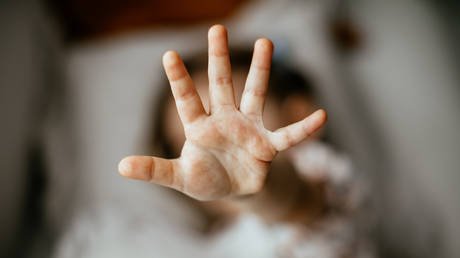The latest report by the Independent Inquiry into Child Sexual Abuse in Britain is not good reading, telling us that both the police and council social services do not deal with it properly. It alleges these failings are often to avoid bad publicity.
Since the Rotherham child sexual exploitation scandals around 20 years ago, there have been around 30 similarly outrageous cases of criminal gangs grooming, drugging and gang-raping teenage girls in England’s towns and cities. This new report now tells us of another six local authorities and police areas where there is evidence that this abuse is still going on.
With nearly 40 years in policing, I have some idea why this evil treatment of vulnerable girls is still happening. There are some common threads to nearly all these cases.
The first is the usual complaint when we talk about public services – a lack of money. This has resulted in social services, children’s homes and educational establishments being short of appropriately trained staff who can spot girls at risk of exploitation and take action to protect them early on. From the police perspective, dealing with girls at risk like this requires specially trained and experienced child protection team officers. Again, these are in short supply following reductions in public spending.
This resource issue is exacerbated by the demands placed on a diminished and less well-trained workforce to deal with cybercrime, fraud, burglary, domestic violence, knife crime, terrorism and a host of other issues. There are simply not enough police officers to adequately deal with all of this. Those with the life experience and training to help a teenage girl with behavioural issues are in even shorter supply.
Furthermore, force intelligence bureaus – the places where analysts collect and sift through possible reports of grooming and exploitation – have also been reduced in staff numbers. Information from patrol officers responding to incidents involving teenage girls is being missed.
I know this from personal experience, because I once did an audit of a force’s intelligence files and discovered that evidence of grooming supplied by officers had been overlooked by the command team. If I could find that with the most cursory glance, I am sure there is a lot of information that has been missed in the computer files of the nearly 50 forces in the UK.
Another common thread to most of these cases is that nearly all the victims are girls in their early teenage years who have troubled lives. They often come from challenged or broken families and are in children’s homes or foster care, or with a parent who isn’t bothered about what they get up to.
All too often, these girls have low self-esteem, feel unloved and, because of their disrupted lives, underachieve at school. Some self-harm, cutting themselves with knives or razor blades. They generally have no role model, a caring mother who will nurture and counsel them through their journey into puberty and early teenage years.
Understandably, these girls have a huge gap in their lives. Some fill this by attention-seeking behaviour, getting involved in crime, shoplifting, burglary, drug taking and disorderly behaviour. As a result, they can often come to the attention of the local police.
This police involvement may occur because they are arrested for offending, or are called to children’s homes due to disturbances. The result is the girls view the police in a negative way and can be offensive or aggressive. Local officers start to lose patience with girls they see as troublemakers, especially if they are subject to abuse or violence from them.
Being called night after night to the same children’s home by the same social carers to be told that the same difficult child has absconded does not endear them to the responding officer – especially because she or he will then have to complete a lengthy report and risk assessment relating to that girl. I have no doubt many officers save these reports as a Microsoft Word document and simply cut and paste them onto the missing person’s report. It saves time for the next call.
Children’s home social workers must complete similar paperwork, every night. It’s all necessary to demonstrate accountability and withstand scrutiny of their actions from the media, politicians, community activists or external investigation bodies in the event of a serious incident or an enquiry. Both police and social workers learn to prioritise self-protection for their careers before trying to find the child or solve the problem. We, as a society, have made it that way, and we only have ourselves to blame. Criticise public officials continually, and this is what you get.
These girls often end on a path to disaster. A handsome face befriends them and grooms them with promises of love, backed up by drink or drugs. Their fate can then be brutal – repeated gang rape, pregnancies, forced abortions and further degradation, resulting in often truly broken young women.
But the final – and undoubtedly the most contentious – common thread is to accept the fact that most of these wicked and heartless grooming gangs are from a specific ethnic minority.
Of late, we have seen more acceptance that most of the offenders are of Asian heritage. But even this is a woke fudge of reality. It is not precise enough to focus resources on, whether that means community interventions or targeted police operations and investigations. Very few dare say that most of the grooming gangs are mainly made up of men of Pakistani heritage. But a look at the countless news stories of convicted offenders confirms that.
In fact, it is possible to be more precise and say a lot are immersed in the culture and religious beliefs to be found in the Mirpur region of Pakistan.
There continues to be a refusal by many in politics, public service, and victim support groups to face this reality. The fear of being called a racist bigot or being accused of stereotyping often results in proactive interventions being misdirected or watered down.
As the police and crime commissioner for Surrey, I once chaired a county community safety meeting and asked the question of the senior public officials present if we had a problem in the county with vulnerable girls being groomed and raped by gangs made up of taxi drivers of Pakistani heritage, as was known to be the case in many cities at that time.
A senior local politician challenged me on using the description of known offenders as being “of Pakistani heritage.” There was a sharp intake of breath on all sides when I went on to say many are from families who originally come from Mirpur in northern Pakistan. No one was prepared to face the facts to address the risks to our vulnerable young girls.
If there was a willingness in many of our cities and towns to engage with the relevant community – whether that means speaking to leaders or visiting mosques – perhaps this issue might be addressed better. But such an approach is too controversial and high risk for public servants and police who seek to keep their jobs or advance their careers.
For many police officers or social workers, dealing with these unfortunate girls is a no-win situation. It can be emotionally upsetting, potentially career threatening, and is just plain hard work.
Until society accepts the fact that these tragic cases are driven by a lack of investment in troubled families, social services, and specially trained police resources, and comes to terms with the fact that most of the offenders are from one small section of a minority community, this blight on our nation will continue.
Moreover, these evil predators will continue to exploit these girls in the knowledge that too often the chances of them being caught or successfully prosecuted are relatively slight. They know only too well how playing the race card can protect them.
To be clear, too many police do not want the grief of being labelled a stereotyping, anti-Pakistani or Muslim bigot. Nor do they want the problems that they may have to face from a disrespectful, ungrateful, and hostile young teenager. You may argue that’s their job, but there is a difference in doing what can be measured and doing what is best to protect the vulnerable. For many police and social workers, the reality is somewhere in between.
Until we get serious about this problem, increase funding and support our social workers and police in the face of unwarranted allegations of prejudice, we can be certain of one thing. This abuse will go on.
The statements, views and opinions expressed in this column are solely those of the author and do not necessarily represent those of RT.


